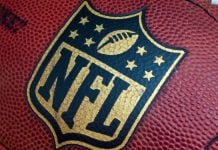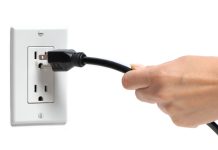The growing number of voices expressing concern about the impact of sports betting expansion in the United States reached the UNLV Conference on Gambling and Risk Taking, where Dr. Timothy Fong of the UCLA Gambling Studies Program spoke about how it has been impacting his patients.
Student-athletes remain at higher risk for problem gambling issues
Fong pointed out what other research has indicated, which is that there is a connection between a higher prevalence of problem gambling and athletes worldwide. However, in the US, it is the student-athlete in particular that has the highest signal ratio.
Programs like those at Towson University are trying to identify ways to protect student-athletes and UCLA is working on proactively identifying potential problems as well. Fong noted there are pre-screening questions designed to potentially flag issues. When issues do arise, the school is trying to foster a community of acceptance and understanding as opposed to suspending and isolating athletes who break the rules.
“Our focus inside our UCLA program is maximizing health and wellness not punishing the behavior of the athlete caught gambling. They do not just immediately get suspended. The athlete has a positive urine drug test for cannabis above the level of expectation, we don’t just put them on the bench,” Fong noted. “We assess them, we treat them, and we get them to continue to be able to train and not sent home.”
Player harassment is now a “training issue”
However, what Fong said has really been a recurring issue and one the industry and research need to spend more time on is player harassment.
“The thing that I think is really brand new this year that we didn’t really see last year was the traumatic experiences that are brought upon by the harassment of the online and in the real world to athletes who play.”
Fong recalled how numerous patients have expressed anxiety about playing that they previously had not experienced. When he would ask where that anxiety was stemming from, they would offer responses like the following:
“Well, this is the first time where I’m actually worried about my performance because I’m worried about the harassment online that’s affecting sports performance.”
Once these feelings sink in and athletes become inundated with these comments, it rises to a level of importance on par with food and rest according to Fong.
‘Suddenly, sports betting becomes a training issue. Just like cardio, strength training, sleep, nutrition, it becomes embedded as part of the athlete’s experience.”
Growing number of people voice concerns over athlete abuse
Fong is far from the only one voicing these concerns. The University of Dayton basketball coach Anthony Grant mentioned to the press that there was an uptick in harassment that came with the launch of Ohio sports betting. The Ohio Casino Control Commission also raised the issue and floated the idea of excluding bettors caught harassing and threatening players.
The NBA’s Bradley Beal is headed to court over an incident that was sparked by a bettor losing and making a comment to Beal about what was going on. Fellow NBA player Chris Boucher noted on his podcast that he received a message referring to him as a “slave” after he failed to hit a Boucher-related player prop bet.
During the LA Lakers’ playoff run, both Anthony Davis and LeBron James said they actively avoid social media because the noise on there is not worth the frustration.
Fong even took note that he is very careful about using the word “abuse” particularly when it comes to verbal or written word as opposed to physical actions.
“I don’t like using the word abuse anymore, particularly as it pertains to language, but in this case, it is online comments and social media posting real-world threats. I didn’t put some of these in [my presentation] because they’re really, really triggering. And they’re shocking. And they’re incredibly powerful. And athletes see that. To be called all sorts of racial epithets, ethnic slurs, all sorts of being treated as essentially objects and property just nonstop,” he said.
Unfortunately, the information around this issue is purely anecdotal so far, which makes it difficult to fully grasp how far-reaching the issue is.
“The precise numbers of what percentage of athletes have been targeted, how many cases are actually happening, how many of them are actually crossing the line to criminal behavior are really opaque because we do not have dedicated reporting systems. But the stories are clear. And the athletes I work with are telling me that is happening more and more and it’s just growing.”
Fong is just the latest to note the issue, the question now is what stakeholders are going to do to address it.














